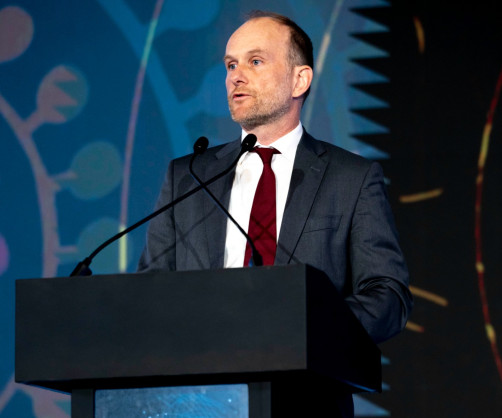Mining in Motion Summit Highlights Growing Support for Formalized Artisanal and Small-scale Mining Sector (ASM) Industry

The second day of the Mining in Motion 2025 Summit highlighted global industry leaders advocating for greater formalization of the artisanal and small-scale mining sector (ASM). The event featured keynote presentations calling for increased cooperation between the ASM and large-scale operators to drive sustainable industry growth.
David Tait, CEO of the World Gold Council, emphasized the scale and importance of the ASM sector, which provides livelihoods for over 40 million people globally. However, he noted that the sector continues to face critical challenges, including illegal operations and environmental degradation.
“With rising global demand and gold prices, illegal mining is on the rise – fueling civil unrest, child labor and depriving governments of billions in revenue that could support development,” Tait stated. “There is a risk in slow policy responses. In 1990, ASM accounted for just 4% of global gold production; today, it represents over 20%.”
He commended Ghana for its various mechanisms such as the Ghana Gold Board in addressing illicit mining.
“Government leadership is a fundamental requirement,” he added.
He called for African markets to increase focus on the professionalization and formalization of ASM operations, increasing ASM access to legitimate financing, and the adoption of mercury-free processing methods.
He also highlighted the World Gold Council’s work with seven central banks, including several in Africa, to ensure gold purchases from ASM sources are channeled through legal frameworks. Additionally, the Council has developed a guide to foster effective collaboration between the ASM and LSM actors.
Representing Africa’s largest gold producer, Stewart Bailey, Chief Corporate Affairs&Sustainability Officer at AngloGold Ashanti, echoed the call for coexistence.
“ASM has been part of the value chain since we were incorporated. For many years our approach has been to co-exist with ASM wherever feasible,” noted Bailey.
AngloGold Ashanti is working with governments, NGOs and global organizations like the World Gold Council to support ASM operators in adopting mercury-free practices, upholding human rights, and promoting environmental rehabilitation, according to Bailey.
Allan Jorgensen, Head of Responsible Business Conduct at the OECD Centre, reinforced the importance of responsible mining practices.
“To unlock Africa’s potential, we must confront the challenges associated with gold as a driver of illicit activities,” Jorgensen said.
The OECD developed a Due Diligence Guidance, supported by governments and aligned with regulations like those of the London Bullion Market Association, to reduce environmental and social risks in gold supply chains.
Distributed by APO Group on behalf of Energy Capital&Power.



